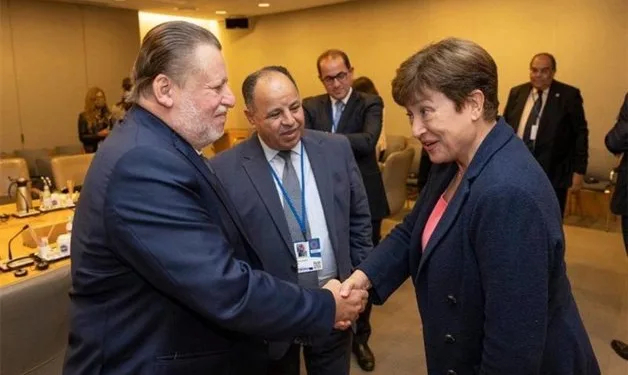Egypt has secured an additional $5 billion credit facility from the International Monetary Fund (IMF) following the floating of its currency.
With this development, Egypt’s total loan obligation to the IMF rose to $8 billion, shoring up an economy hit by a staggering shortage of foreign currency and soaring inflation.
The new agreement represents an extension of the $3 billion, 46-month Extended Fund Facility initiated by the IMF with Egypt in December 2022. This facility aimed to transition towards a more flexible exchange rate system.
While progress was hindered by Egypt’s decision to maintain a tightly managed pound exchange rate and delays in divesting state assets and boosting private sector involvement, the program continued to evolve.
Egypt also pursues a separate loan from the IMF’s Resilience and Sustainability Facility, focusing on climate transition financing. Prime Minister Mostafa Madbouly disclosed the loan amount at $1.2 billion, although discussions regarding this request will proceed independently.
READ ALSO: Inside the Largest Mosque in Africa
Ivana Vladkova Hollar, IMF’s Egypt mission chief, emphasized that the IMF is not advocating for a specific devaluation of the pound but seeks a sustainable transition to a unified market-determined exchange rate. She commended the central bank’s recent actions as a positive stride towards this objective.
According to Vladkova Hollar, this approach entails observing not only devaluations but also two-way movements in the exchange rate, reflecting economic dynamics.
The IMF announced an agreement with Egypt on the policies required to complete the delayed first and second reviews under the program. These policies, subject to approval by the fund’s executive board, aim to maintain debt sustainability, restore price stability, and establish a functional exchange rate system. Moreover, they aim to advance structural reforms to foster private sector-led growth and job creation.
Policy discussions encompass commitments to a flexible exchange rate, monetary tightening, fiscal consolidation, social spending to shield vulnerable groups, and reforms to eliminate privileges for state-owned enterprises—a reflection of the original program’s pillars.
Additionally, discussions include a new framework to regulate infrastructure spending, including projects operating outside regular budget oversight, according to the IMF statement.
What you should know
The Egyptian economy grapples with multifaceted challenges stemming from years of government austerity measures, compounded by the disruptive impacts of the COVID-19 pandemic and the reverberations of conflicts such as the war in Ukraine and the recent escalation in Gaza.
Since January 2022, the Egyptian pound has experienced a significant depreciation, shedding approximately 50 percent of its value against the US dollar. This substantial devaluation poses significant economic hurdles, impacting various sectors of the economy and amplifying concerns about inflation and purchasing power among Egyptian citizens.
Moreover, official figures indicate that nearly 30 percent of Egyptians live below the poverty line, underscoring the profound socio-economic disparities prevalent in the country. The prevalence of poverty exacerbates existing vulnerabilities, hindering access to basic necessities, healthcare, education, and employment opportunities for a significant portion of the population.
The confluence of these economic challenges underscores the urgent need for comprehensive and sustainable policy interventions to address systemic issues and mitigate the adverse effects on livelihoods and economic stability. Such measures may include targeted social welfare programs, investment in infrastructure and human capital development, and initiatives to foster inclusive economic growth and job creation.
Furthermore, the Egyptian government faces the daunting task of navigating through external shocks and geopolitical uncertainties while endeavoring to restore confidence in the economy and attract foreign investment. Efforts to diversify the economic base, promote export-oriented industries, and enhance competitiveness in global markets are essential to bolstering resilience and fostering long-term economic sustainability.
In addition to domestic initiatives, collaboration with international partners, multilateral organizations, and regional stakeholders is crucial in mobilizing resources, sharing best practices, and accessing expertise to address complex economic challenges effectively.
Despite the formidable obstacles confronting the Egyptian economy, there remains cause for cautious optimism. The resilience and resourcefulness of the Egyptian people, coupled with concerted efforts from government authorities and stakeholders across various sectors, offer a pathway towards overcoming adversity and charting a course towards inclusive growth, prosperity, and resilience in the face of uncertainty.










